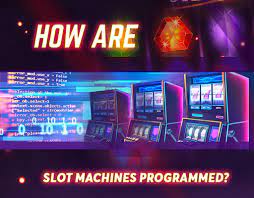Gambling and gaming have been traditionally perceived as distinct activities. Roughly distinguish gambling and gaming predicated on their central features: gambling is characterized by its risk-involving, chance-determined outcomes and monetary features, such as for instance wagering and betting mechanisms.
While gaming is described as interactive, skill-based play and contextual relevance in game progress and success. However, these boundaries are becoming more and more blurred.
In this systematic review, we make an effort to summarize earlier research on online gambling and gaming communities. And their role in gambling and monetary gaming behaviors. Our recent studies find this relation is a result of a divergence. That is influenced by the latest technological advancement, namely cryptocurrencies.
The Social Dimension of Gambling and Gaming

Humans have a need that is basic social belonging and relatedness, which can be one reason why behind the prosperity of social network and social media. Following Kozinets’ (1999) fundamental definition, virtual communities (i.e., online communities) consist of sets of people sharing social interactions, social ties, and virtual spaces for interactions.
These online communities are characterized by shared interests, goals, and norms that unite like-minded individuals. Indeed, in a environment that is virtual are likely toward homophily, this is certainly, to look for for and connect to similar other communities.
Identifying with a community that is virtual of like-minded people might have important consequences for a user. Identifying with the community’s shared social identity and internalizing its group norms affect user behavior.
Moreover, social media marketing studies have shown that people often depend on information and content provided by their in-group members. Particularly when speaing frankly about potentially addictive behaviors, identifying with an community that is online influence intentions and attitudes toward harmful direction and normalize maladaptive behavior.
However, online communities and identity that is shared additionally can be beneficial in overcoming an addiction.
When it comes to gambling and gaming, online communities cover types of virtual spaces, such as discussion forums and social networks, where gamblers and gamers can connect to other gamblers and gamers.
However, social interaction is certainly not limited by distinct online platforms, as games often also include in-game interactive tools. Video games, in particular, are typically formed around interactive elements, such as for example chatting with one’s team members during the game, that aren’t simply the full case in traditional forms of gambling activities.
In particular, Massively Multiplayer Online Role-Playing Games (MMORPGs) are characterized by their community aspects and playing that is joint.
In MMORPGs, gaming normally takes place in “guilds” that may be thought as long-lasting social structures where players are interdependent on each other’s contribution (Zhong 2011). Guild playing can also be essential in terms of a player’s game-related identity where basic social skill is needed.
Monetary Relation Between Gambling and Gaming
Digital games increasingly utilize monetary features, typically microtransactions, as revenue models. Microtransactions are required, for instance, to get features that are additional better equipment in a casino game.
In this review, we consider these different virtual spaces and their role in gambling and monetary gaming behaviors in more depth.
Nowadays, in-game item named “loot boxes” have become common especially in video gaming, sharing the chance-determined top features of gambling. Loot boxes are virtual entities which contain randomized items (e.g., item, weapons, skins or other equipment) and may be paid with real-world money.
Recent research found that paying for loot boxes was connected with problematic gambling. It has additionally been suggested that as a result of many similarities between gambling and gaming, playing game titles would increase a desire to gamble; but recent studies have not fully supported this.

As well as video games, online games increasingly include gambling-like features. For example, social media sites, such as Facebook, include social games that simulate gambling activities like poker, roulette, or slot machine games.
Although these kinds of games tend to be regarded as harmless and safe alternatives for real-money gambling, their gambling-like characteristics might also trigger motivation for real gambling and teach mechanisms of gambling to children and adolescents.
Moreover, while “free-to-play” games usually do not initially require real-money use, they typically encourage players which will make purchases that are in-gamei.e., microtransactions) to obtain use of additional features.
The aforementioned studies demonstrate that gambling and gaming can no longer be regarded as fully activities that are distinct. Rather, they increasingly share common characteristics related to mechanisms that are gambling-like.
Also read: 10 Best PS4 Multiplayer Games 2021
Online Communities Influence on Addictive Behaviors
Online gambling and gaming communities often normalize addictive behaviors and influence purchase intentions; but at least in gambling, communities may support moderate forms also of gambling, provide socio-emotional support for recovery of addiction which help to deal with a gambling problem.
Although the line between gambling and gaming happens to be blurred due to increased use of gambling-like mechanisms in digital games, the outcomes for this review indicate that social interactions within these two activities have different functions, as well as motives for and outcomes for the interaction differ with regards to monetary behavior.
The Role of Virtual Communities

The role of virtual communities must certanly be acknowledged in prevention and treatment of gambling and gaming problems. In particular, it could be essential to understand social mechanisms, such as social influence and learning that is social taking place in virtual gambling and gaming environments.
Raising understanding of social underpinnings and influential mechanisms behind gambling and gaming that is monetary make a difference for players, parents and health care professionals when aiming to reduce excessive behavior and money consumption.
Limiting players’ in-game social interaction would have to reduce excessive money spending, especially in group- and guild-based gaming, where purchase intention often follows strong belonging or attachment into the community.
Conclusion

In gambling, utilizing recovery-oriented virtual communities that are problem gamblers will be useful considering that such communities are been shown to be beneficial in implementing beneficial areas of peer-influence, support and anonymity.
Finally, improving gamblers’ and gamers’ offline relationships and healthy activities will be crucial in risk-prevention. Meaningful offline relationships and social activities would reduce the need for spending lots of time gambling and gaming online, but also diminish the need for belonging to virtual communities and trying to find social contacts online.






